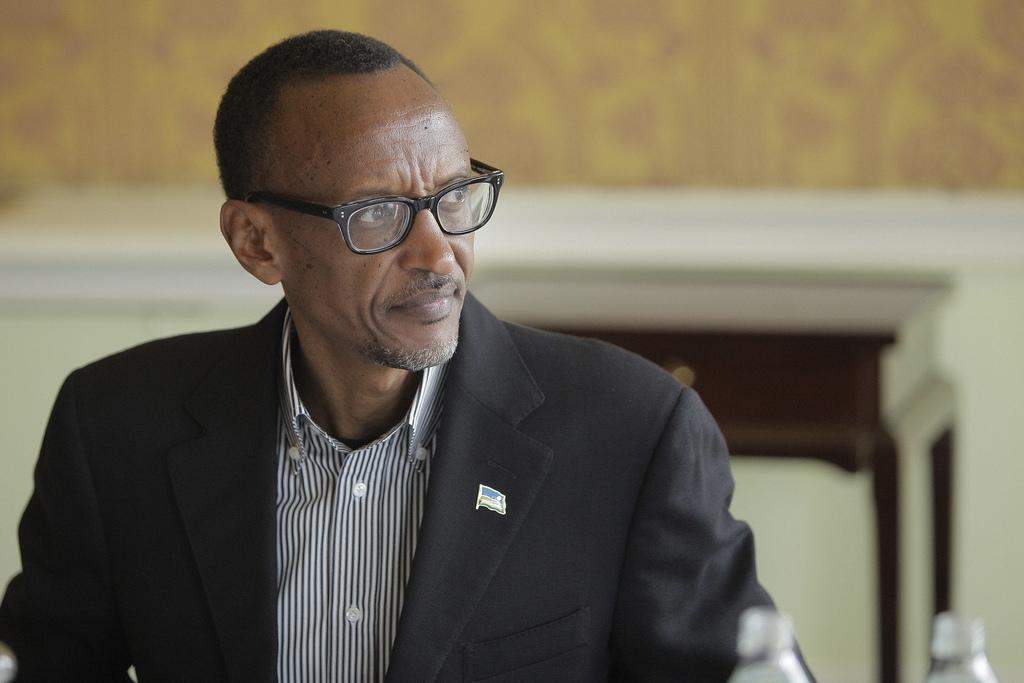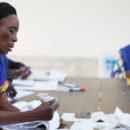Paul Kagame’s life-presidency: The world abandons Rwanda again

Following Kagame’s 99% election win, his former chief of staff speaks out against the international community’s uncritical support for the president.

President Paul Kagame. Credit: ITU/J.Ohle
On 4 August, Rwanda’s President Paul Kagame was re-elected with a near-perfect vote of 99%, earning himself a place in history alongside the likes of Joseph Stalin, Saddam Hussein and Kim Jong Un. The costly sham elections had been preceded by a constitutional referendum in 2015. In that vote, 98% approved changes that allow Kagame, in power since 1994, to be president until 2034.
The results of the just-concluded elections come as no surprise. On 14 July, Kagame himself declared that everyone already knows the outcome of the elections. Nevertheless, he imposed the pointless vote that cost impoverished taxpayers around 5 billion Rwanda Francs ($6 million).
[Rwanda’s election outcome is already decided]
To justify his one-man-as-the-sole-hero status in contemporary Rwanda, Kagame has amassed as many false arguments as his swelling numbers of victims. He is painted as the Pan-Africanist who stopped the genocide, empowered women, rolled back malaria and HIV/AIDS, built hotels and conference centres, sent peacekeepers to represent Western interests in Africa’s hot spots, and became a shining example of an Africa-led development model.
But Kagame has conveniently forgotten that Rwanda’s civil wars of 1959 and the 1990s were not about economic development but the exclusion of whole ethnic groups from power structures. Out of their seemingly perpetual guilt and geostrategic selfishness, the president’s benefactors and cheerleaders, chiefly the US and UK, amplify his selective amnesia, deadly outlook, and actions. Emboldened by having powerful allies, Kagame rules with reckless intransigence and impunity.
Ruling with impunity
There are several reasons why Kagame seeks to remain in power indefinitely. One of them is to prevent accountability for the crimes that he and those under his command have committed against Rwandan Hutu, including war crimes, crimes against humanity, and genocide.
[Rwanda: Revisiting the Rusatira Affair]
Regime changes in Rwanda have never redressed the problematic power structures that the country has had since its founding as a nation. But international indifference, as well as interference, have also been important factors in Rwanda’s cyclical and sectarian bloodshed. Now, the silence and complicity of the international community reinforces Kagame’s ability to rule with impunity.
Neighbours been also not been spared the effects of spillovers from Rwanda’s internal crises. Kagame’s regime has become a destabilising force in the Great Lakes region, most notably the Democratic Republic of Congo and Burundi.
Acting on its appetite for natural resources, and championing foreign commercial and geostrategic interests, Kagame’s regime has taken on the shameful role previously played by dictators like President Mobutu of former Zaire in the Cold War.
Abandoned by the international community
At different turning points in Rwanda’s history, the international community has largely abandoned Rwanda’s defenceless people as they have experienced cataclysmic and deadly upheaval at the hands of violent cliques. From 1975 to 1994, it was the Hutu clique and the National Republican Movement for Democracy and Development (MRND) that controlled the country; since 1994, it has been the ruling Rwanda Patriotic Front (RPF), led by the Tutsi clique.
In 1994, as the MRND establishment unleashed its security forces and militia against Tutsi in the fastest genocide ever recorded, the international community turned its back on Rwandans. But in the aftermath of the genocide, it failed to act again as the new RPF establishment descended on Hutus in Rwanda and the DRC.
With ruthless efficiency, the notorious Directorate of Military Intelligence (DMI) and Tutsi officers directly under Kagame’s command executed what are now well-documented but still rarely-recognised atrocities. The world deserted Rwandans by deliberately shielding and failing to bring Kagame’s regime to account.
Today, the international community is still failing to act in the interests of the Rwandan people. The US and UK’s overt and covert support for Kagame’s regime, coupled with failures of the past, have led the majority of people to lose trust in foreign powers as a reliable partner in the country’s social, economic and political development.
United action
Rwanda’s road to freedom, human rights, justice, democracy and rule of law will be long and fraught with dangers. But Kagame’s life presidency and immunity from scrutiny or criticism ultimately imperils the country, region and continent.
There is no quick and cheap fix for tyranny. Dreadful as this reality is, Rwandans must seek Rwandan solutions for Rwandan problems. However, foreign supporters cannot ignore the long-term consequences of Kagame’s role as Africa’s leading destabiliser, looter, warmaker, and tyrant.
For now, freedom and positive peace may seem distant dreams for the majority of Rwandans. Evidently, the price of uprooting the entrenched roots of tyranny is likely to be high. But it will require efforts across the short, medium and long term, and united actions involving both those inside and outside the country.







Kagame is the son of invisible dictator,yuweri museveni of Uganda. He is the founder of Tutsism orginated from Uganda all the way to the East of Congo. Museveni is apparently advising kagame to remain on power thus will cover his tyranny.
Like your news
Your hate for this country is irrelevant. Enjoy your frustrations, they are your own.
CONTENT BIASSED> NO WONDER SEEK SELF PROMOTION. RWANDANS KNOW WHERE THEY HAVE COME AND WHERE THERE ARE HEADING. THE NATION IS NO MORE ETHNIC. THAT WAS COLONIAL AND NEO-COLONIAL. THE NEW GENERATION HAVE BETTER VIEWS AND OPINIONS.
Did the international Community stop the 1994 genocide? No it was Paul Kagame the warror and the RPF who put their Lives on the line to rebill Rawanda. Not the outside critics and those who want term limits a quasi dictatorship.
cialis price https://cialiswithdapoxetine.com/